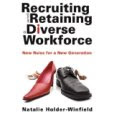 In case you missed the article by Tamar Lewin in this weekend’s NYTimes, here’s the newsflash: Girls’ Gains Have Not Cost Boys. It’s amazing to me that we need a report to prove this. But kudos to the researchers over at the American Association of University Women who pulled it together. Maybe now the boy-crisis warriors can finally cool down.
In case you missed the article by Tamar Lewin in this weekend’s NYTimes, here’s the newsflash: Girls’ Gains Have Not Cost Boys. It’s amazing to me that we need a report to prove this. But kudos to the researchers over at the American Association of University Women who pulled it together. Maybe now the boy-crisis warriors can finally cool down.
In 1992, you may recall, the AAUW released a landmark report on how girls are shortchanged in the classroom, causing a national debate over gender equity. Then came the Christina Hoff Sommers of the world, arguing that efforts to help girls have come at boys’ expense. Echoing research released two years ago by the American Council on Education and other groups, the new report says that while girls have for years graduated from high school and college at a higher rate than boys, the largest disparities in educational achievement are not between boys and girls, but between those of different races, ethnicities and income levels.
The AAUW report looks at many indicators of educational achievement, including dropout and disciplinary rates. It analyzes data from SAT and ACT college entrance exams and the National Assessment of Education Progress, known as the nation’s report card, as well as federal statistics about college attendance, earned degrees and other measures of achievement. Researchers concluded that:
— A literacy gap in favor of girls is not new, nor is it increasing. Over the past three decades, the reading gap favoring girls on NAEP has narrowed or stayed the same. Nine-year-old boys scored higher than ever on the reading assessment in 2004; scores for 13- and 17-year-old boys were higher or not much different from scores in the 1970s. A gender gap still exists favoring boys in math, especially among 17-year-olds on the NAEP.
— The percentages of students scoring at higher levels of proficiency on the NAEP are rising for both boys and girls.
— Students from lower-income families — families with incomes of $37,000 or less — are less likely to be proficient in math and reading. Gender differences vary significantly by race and ethnicity.
— There is virtually no gap between boys and girls entering college immediately after high school.
AAUW’s study does show female students outperforming male students in some measures. Women have earned 57 percent of bachelor’s degrees since 1982 and outperformed boys on high school grade-point averages. In 2005, male students had a GPA of 2.86 and girls, 3.09.
From 1978 to 2004, among students age 13 and 17, white males scored higher on average than white females on 10 of 18 tests. For Hispanic students, 13- and 17-year-old males outscored females on three of the 18 tests. There was no gap among African American girls and boys.
Check out coverage in the Washington Post as well (No Crisis For Boys In Schools, Study Says: Academic Success Linked to Income).
Yes, boys are in trouble. But up with girls does not mean down with boys. Copy that? Let’s hope this new study might put that silly argument to rest.










